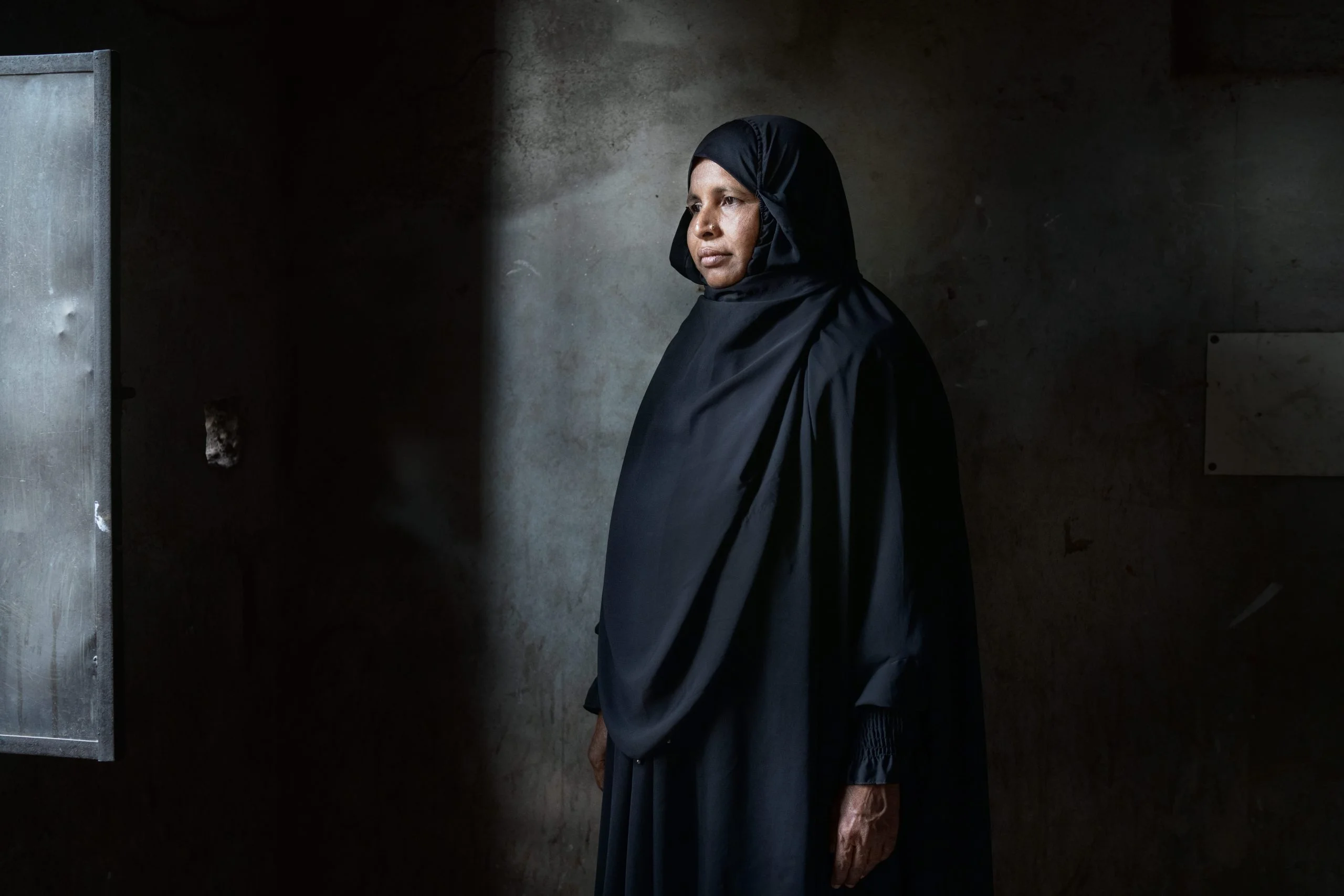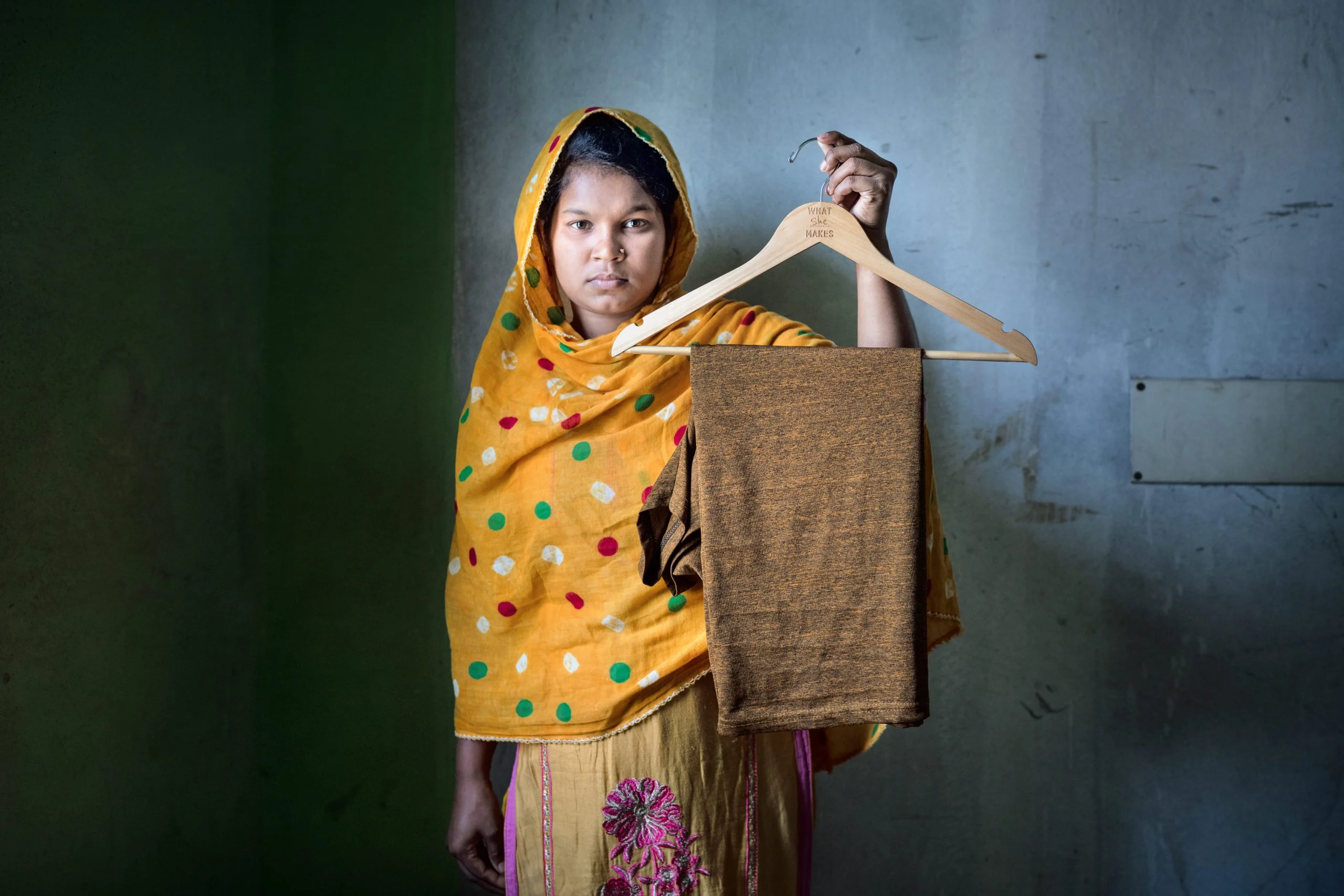Oxfam’s What She Makes campaign demands big clothing brands pay the women who make our clothes a living wage.
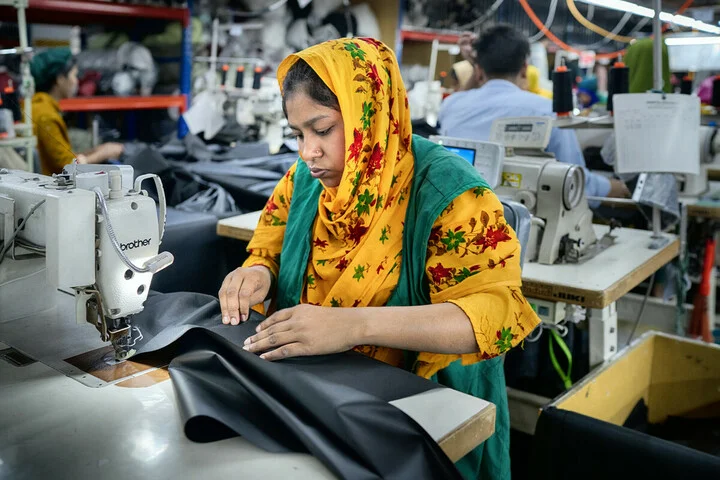
COMPANY TRACKER
See how your favourite brands stack up
Are they committed to paying the women who make our clothes a living wage?
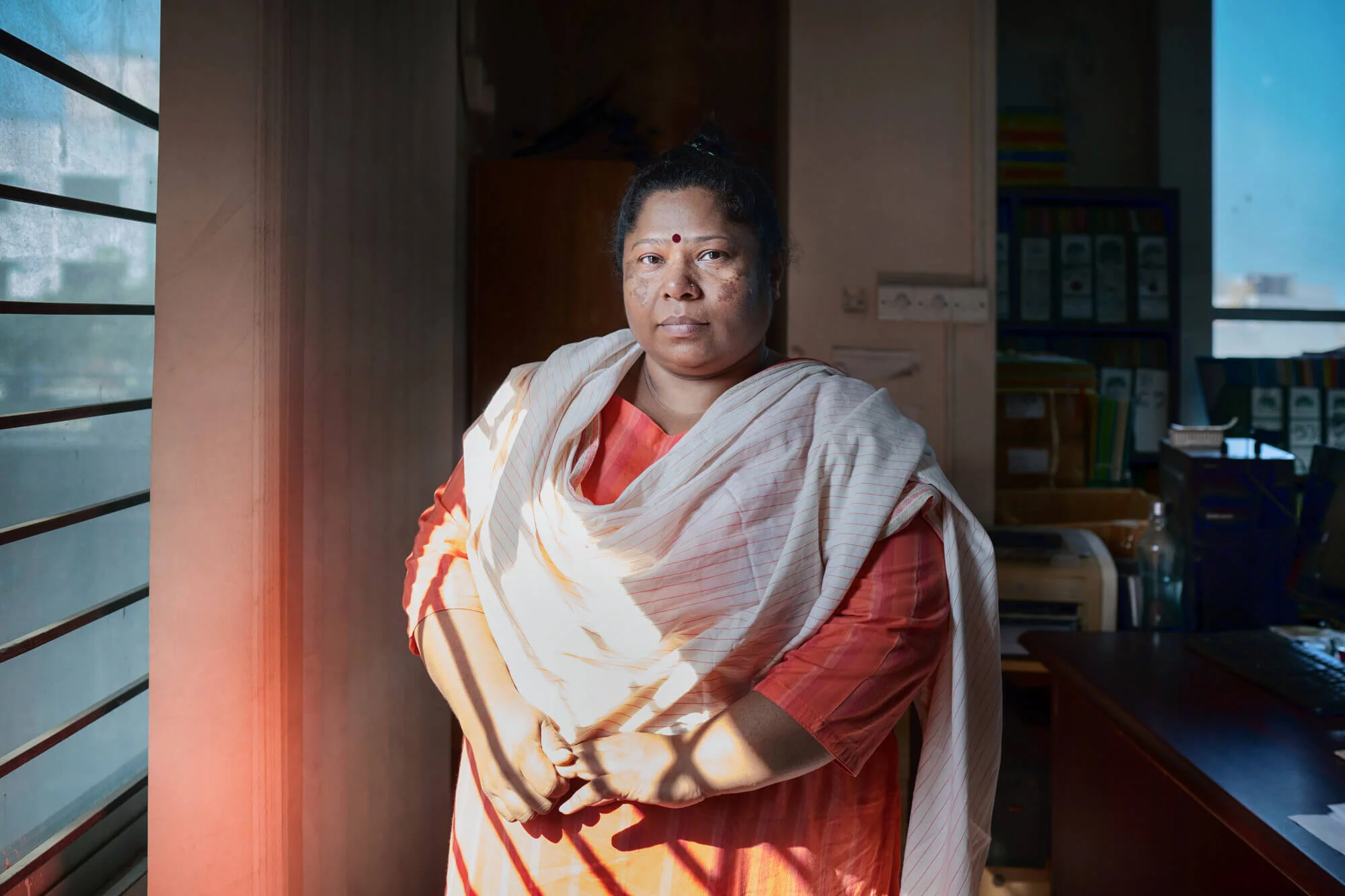

THE CAMPAIGN
Big brands are keeping the women who make our clothes living in poverty.
The women who make our clothes do not make enough to live on – keeping them in poverty. Despite long hours away from their families, working full time plus many hours of overtime, big clothing brands do not pay garment workers enough money to cover the basics of life – food and decent shelter.
“We wish to earn and live appropriately with that. That’s all I want.””
READ AJIRUN’S STORYReports
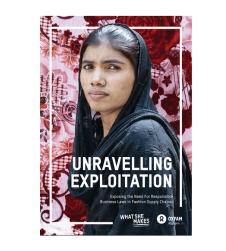
Unravelling Exploitation
Oxfam latest research demonstrates how slavery-like practices are impacting the lives of women and children in the garment industry and the potential exposure of Australian
businesses. (August 2025)
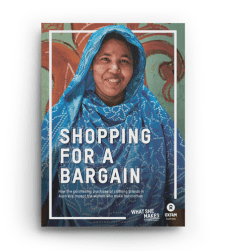
Shopping for a bargain
Oxfam has released groundbreaking research, that reveals how unethical business practices of Australia’s fashion brands impact the women who make our clothes.
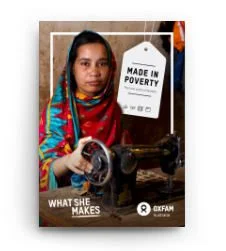
Made in Poverty: The True Price of Fashion
Groundbreaking research from Oxfam showing the impact that low wages has on the lives of the people who make our clothes. (February 2019)
Latest Updates

Unravelling exploitation
It’s time to end modern slavery in fashion supply chains. Add your name to our petition to the Attorney General of Australia and demand responsible business practices now.
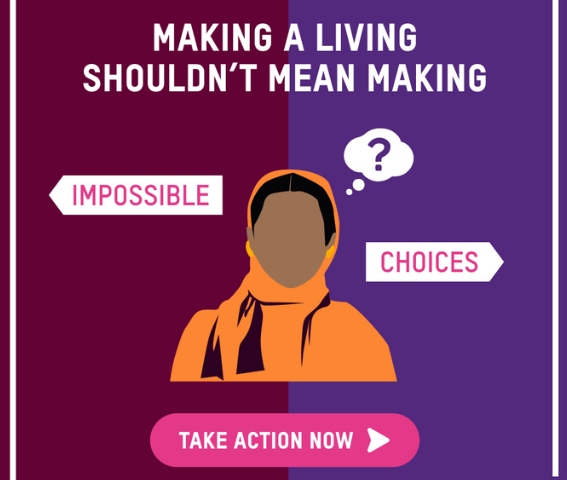
What she makes is keeping her in poverty
The big clothing brands are still not paying garment workers enough money to cover the basics of life – food, medicine, decent shelter. What she makes should not keep her in poverty. Sign the pledge today.

Congratulate Lorna Jane for paying a living wage to their workers
A What She Makes first! Lorna Jane have shown they have reached Step 5 on the Company Tracker: Pay a Living Wage!
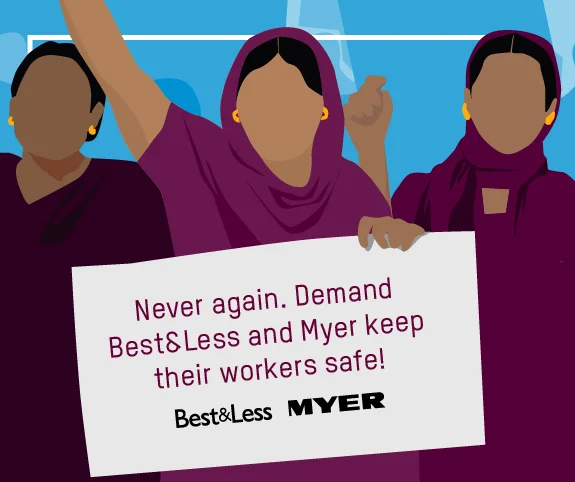
Demand Best&Less and Myer keep their workers safe
It’s been 11 years since the Rana Plaza factory collapsed, killing 1,134 workers. Demand Best&Less and Myer put safety over profit and sign the Accord today.
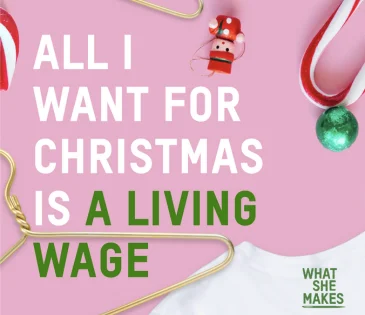
Oxfam’s Christmas Wish List 2023
All we want for Christmas is for the women who make our clothes to be paid a living wage.
Our Christmas Wish List includes brands that are lagging behind on their journey to pay a living wage.
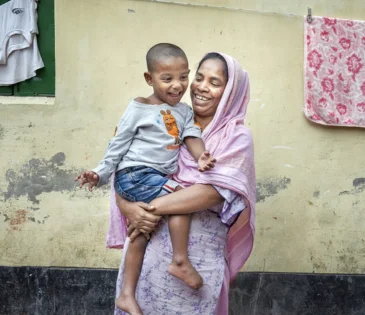
What She Makes Trip Report 2023
In early 2023 Oxfam Australia, Canada and Aoteaoa (NZ) visited Bangladesh. This was an opportunity for the women who make our clothes to tell their stories, helping us spread the truth about what she makes.

New eBook! Who made my clothes?
Did you know the women in Bangladesh who make our clothes get paid as little as $173 a month? Download our FREE eBook to uncover the ugly truth behind fast fashion and how together, we can create a fairer fashion industry.

Ten years on from Rana Plaza tragedy
Oxfam Australia is marking the 10th anniversary of the Rana Plaza tragedy by calling on Australian brands to do more to protect the rights of garment workers.
